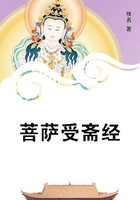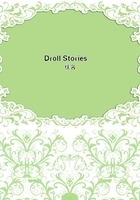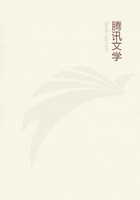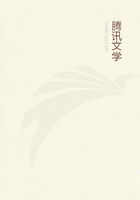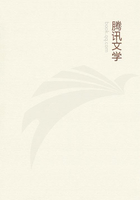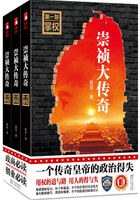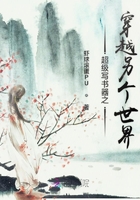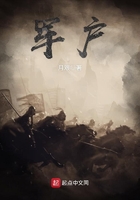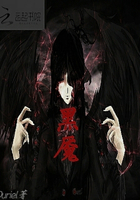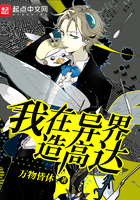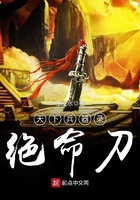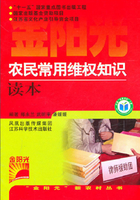Chaucer is less explicit, and may have been too little of a politician by nature to care for preserving an outward consistency in his incidental remarks concerning the lower classes. In his "Clerk's Tale" he finds room for a very dubious commonplace about the "stormy people," its levity, untruthfulness, indiscretion, fickleness, and garrulity, and the folly of putting any trust in it. In his "Nun's Priest's Tale" he further enlivens one of the liveliest descriptions of a hue-and-cry ever put upon paper by a direct reference to the Peasants' Rebellion:--So hideous was the noise, ah bencite!
That of a truth Jack Straw, and his meinie Not made never shoutes half so shrill, When that they any Fleming meant to kill.
Assuredly, again, there is an unmistakably conservative tone in the "Ballad" purporting to have been sent by him "to King Richard," with its refrain as to all being "lost for want of steadfastness," and its admonition to its sovereign to ...shew forth the sword of castigation.
On the other hand, it would be unjust to leave unnoticed the passage, at once powerful and touching, in the so-called "Parson's Tale" (the sermon which closes the "Canterbury Tales" as Chaucer left them), in which certain lords are reproached for taking of their bondmen amercements, "which might more reasonably be called extortions than amercements," while lords in general are commanded to be good to their thralls (serfs), because "those that they clept thralls, be God's people; for humble folks be Christ's friends; they be contubernially with the Lord." The solitary type, however, of the labouring man proper which Chaucer, in manifest remembrance of Langland's allegory, produces, is one which, beautiful and affecting as it is, has in it a flavour of the comfortable sentiment, that things are as they should be. This is--not of course the "Parson"himself, of which most significant character hereafter, but--the "Parson's" brother, the "Ploughman". He is a true labourer and a good, religious and charitable in his life,--and always ready to pay his tithes.
In short, he is a true Christian, but at the same time the ideal rather than the prototype, if one may so say, of the conservative working man.
Such were some, though of course some only, of the general currents of English public life in the latter half--Chaucer's half--of the fourteenth century. Its social features were naturally in accordance with the course of the national history. In the first place, the slow and painful process of amalgamation between the Normans and the English was still unfinished, though the reign of Edward III went far towards completing what had rapidly advanced since the reigns of John and Henry III. By the middle of the fourteenth century English had become, or was just becoming, the common tongue of the whole nation. Among the political poems and songs preserved from the days of Edward III and Richard II, not a single one composed on English soil is written in French. Parliament was opened by an English speech in the year 1363, and in the previous year the proceedings in the law courts were ordered to be conducted in the native tongue. Yet when Chaucer wrote his "Canterbury Tales," it seems still to have continued the pedantic affectation of a profession for its members, like Chaucer's "Man of Law," to introduce French law-terms into common conversation; so that it is natural enough to find the "Summoner"following suit, and interlarding his "Tale" with the Latin scraps picked up by him from the decrees and pleadings of the ecclesiastical courts.
Meanwhile, manifold difficulties had delayed or interfered with the fusion between the two races, before the victory of the English language showed this fusion to have been in substance accomplished. One of these difficulties, which has been sometimes regarded as fundamental, has doubtless been exaggerated by national feeling on either side; but that it existed is not to be denied. Already in those ages the national character and temperament of French and English differed largely from one another;though the reasons why they so differed, remain a matter of argument. In a dialogue, dated from the middle of the fourteenth century, the French interlocutor attributes this difference to the respective national beverages: "WE are nourished with the pure juice of the grape, while naught but the dregs is sold to the English, who will take anything for liquor that is liquid." The case is put with scarcely greater politeness by a living French critic of high repute, according to whom the English, still weighted down by Teutonic phlegm, were drunken gluttons, agitated at intervals by poetic enthusiasm, while the Normans, on the other hand, lightened by their transplantation, and by the admixture of a variety of elements, already found the claims of esprit developing themselves within them. This is an explanation which explains nothing--least of all, the problem: why the lively strangers should have required the contact with insular phlegm in order to receive the creative impulse--why, in other words, Norman-French literature should have derived so enormous an advantage from the transplantation of Normans to English ground. But the evil days when the literary labours of Englishmen had been little better than bond-service to the tastes of their foreign masters had passed away, since the Norman barons had, from whatever motive, invited the commons of England to take a share with them in the national councils. After this, the question of the relations between the two languages, and the wider one of the relations between the two nationalities, could only be decided by the peaceable adjustment of the influences exercised by the one side upon the other. The Norman noble, his ideas, and the expression they found in forms of life and literature, had henceforth, so to speak, to stand on their merits; the days of their dominion as a matter of course had passed away.

